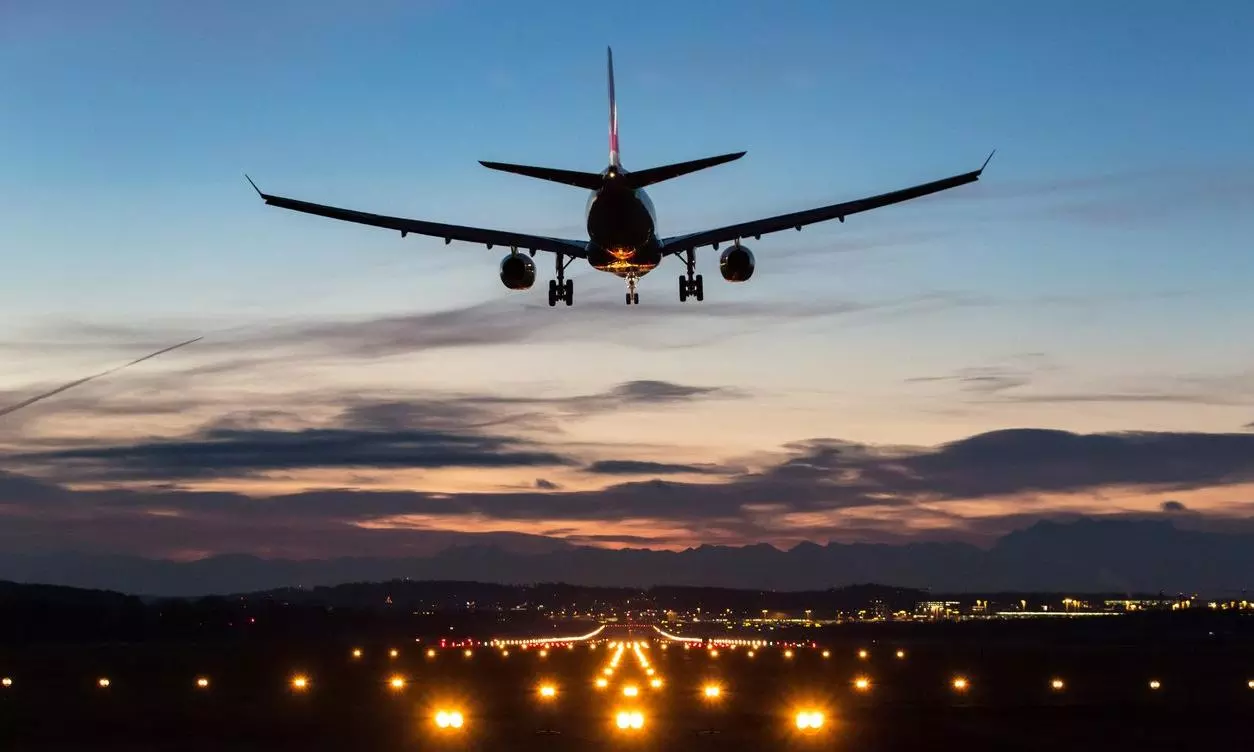
DGCA directs planes at defence airports to keep windows rolled down: Report
The DGCA directive, enforced after the ceasefire between India and Pakistan, applies to dual-use airports that serve both civilian and military operations

The Directorate General of Civil Aviation (DGCA), the regulator of air travel in India, has reportedly directed commercial airlines, charter and private jets leaving defence airports to ensure their window shades are closed during take-off and landing, especially in Western airports near Pakistan.
According to India Today, the DGCA directive, which comes days after India's western borders saw hostilities with Pakistan, applies to dual-use airports that serve both civilian and military operations.
Also read: Pak rejected IndiGo pilot's request to use its airspace to avoid turbulence
This is to ensure that passengers travelling to these airports on civilian aircrafts don't mistakenly, or purposefully, reveal sensitive information on the infrastructure of the defence bases.
All windows except emergency row to be closed
The rule will apply till the aircraft ascends to 10,000 feet after take-off, and after it descends to this height during landing. The only exception to this rule applies to emergency exit rows, the aviation regulator said. Passengers who violate the directive will be charged with the full force of the law, said the agency.
In normal circumstances, all window shades have to remain open during take-off and landing for safety reasons. This allows passengers and crew to quickly assess external conditions, such as fires or debris, and to better see exits in case of an emergency evacuation.
Also read: Man held at Patna airport after 2 live cartridges seized from luggage
The DCGA order for civilian operations at defence outfields adds: "Aerial or ground photography and videography are strictly prohibited at all times during a passenger's travel, including when he or she is inside the terminal, in vehicles en-route to or from the aircraft, outside the aircraft, during landing, at the airport, during pushback, taxiing, take off, and while the aircraft is flying below 10,000 feet."
'Clearly inform passengers'
Moreover, the DGCA has also asked airlines to alert passengers of the ban on photography and videography at military bases during their transit, saying, "All operators must take the necessary steps to ensure passengers are clearly informed and regularly reminded of the prohibition on photography and videography at military bases, and communicate the potential consequences of non-compliance, including regulatory or legal action as per applicable security protocols."
Airlines have been directed to make mandatory pre-flight announcements, both before take-off and landing, instructing passengers to close window shades and refrain from using cameras or phones for recording.
Also read: 32 airports to resume operations, airlines issue travel advisories
Moreover, the DGCA has asked all operators to formulate SOPs for their crew to manage safety and security risks while operating from defence airports.
Enforced in aftermath of Operation Sindoor
The guidelines have been issued to enhance "operational safety" and prevent the "unintentional sharing of security-related information by the public", the DGCA directive said.
The airports where the directives have to be strictly followed include the ones at Leh, Srinagar, Jammu, Pathankot, Adampur, Chandigarh, Bathinda, Jaisalmer, Nal, Jodhpur, Hindon, Agra, Kanpur, Bareilly, Maharajpur, Gorakhpur, Bhuj, Lohegaon, Goa (Dabolim), and Vizag.
Also read: India extends airspace closure for Pakistani airlines till June 23
These include cities with crucial defence airports that were at the centre of Operation Sindoor, India's counter-attack after the terrible attack by terrorists on Indian citizens in Pahalgam.
Amid the tensions, 32 airports in north, central and western India, including many sensitive defence airbases, were closed for a few days. Operations have resumed with full force now, but security concerns remain, as India goes through a full sweep of spies, and espionage agents Pakistan might have in India, with several arrests made over the last few weeks.

